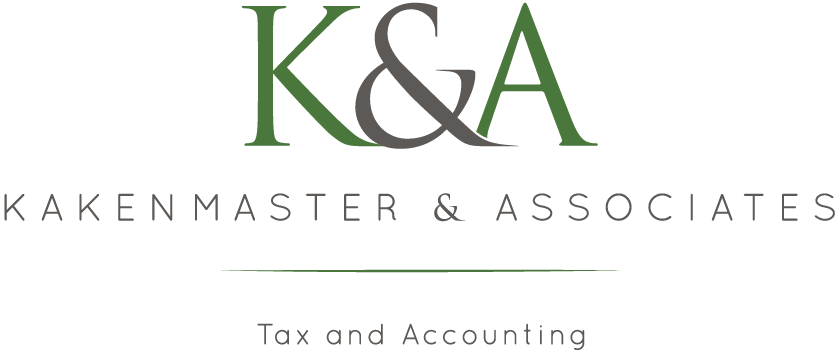Withholdings and Estimated Tax Payments
With the end of the year approaching, the IRS urges taxpayers to check withholdings on paycheck or pension income. It is especially important if the taxpayer has had one or more of the following events take place in 2019:
Received a smaller than expected refund or owed an unexpected tax bill for their 2018 tax return.
Had a key life event in 2019 such as getting married, divorced, having or adopting a child, retiring, purchasing a home, or starting college.
Estimated tax payments are due quarterly for those who have self-employment income, investment income (including gain from the sales, exchange or other disposition of virtual currency), taxable Social Security benefits and in some instances pension and annuity income. The last payment for estimated taxes payments for 2019 are due on January 15, 2020.
Filing a Tax Extension
Kakenmaster & Associates wants to make the filing of your 2019 tax return as efficient as possible. With many new filing requirements, filing by the April 15 deadline can pose problems for some. If you fall into this category, it may be beneficial for you to file an extension.
Anyone is eligible to file a tax extension for their personal tax return. Most of the time we recommend filing an extension while you wait for all your required tax documents such as final brokerage statements or final K-1 statements. Filing an extension will alleviate the need to amend tax returns that were submitted without final statements.
Also, for those who brave the winter months and don't want to travel to the office during the uncertain winter weather, filing a tax extension is highly recommended.
Remember a tax extension is an extension to file your return, not an extension to pay any taxes due. If you file a tax extension, we will estimate if you owe any taxes based on the information you have at the time of the extension. There is no charge to file the extension.
Don’t Forget to Take Your Required Minimum Distributions Before December 31
Required minimum distribution (RMD) is the minimum amount you must withdraw from your IRA, SEP IRA, SIMPLE IRA, or retirement plan account(s) each year. You generally must start taking withdrawals when you reach age 70½. The deadline for taking your RMD is December 31 of each year.
To ensure that you meet your RMD in 2019 and avoid penalties for not doing so, we recommend that you begin the process now.
Visit the IRS website for RMD Frequently Asked Questions.
Additional Reminders
Tax Appointments: Call today to schedule your tax appointment to help ensure that you receive the appointment time that is best for an in-person tax appointment.
Watch for the Kakenmaster Report Data Sheet issue to arrive in your mailbox in the beginning of January. This issue provides a simple way to compile your 2019 tax data.
Drop-Off Service & Online Portal: Use our drop-off service or the secure online portal to provide us with your tax information and Data Sheet. Your taxes will be completed within seven days (time may vary if a specific preparer is requested). You can also mail in your tax information.
Electronic Filing: All returns are filed electronically. The IRS usually has a two-week turnaround time. Even if you have a balance due, your return can be filed electronically. Payment is not due until April 15, 2020.
Change of Mailing Address: If your address has changed in 2019, it is important to confirm that each employer, bank, or other payer has a current mailing address or email address. Typically, year-end forms start arriving by mail or are available online in January.
Call our offices today for more information on any of these items.

